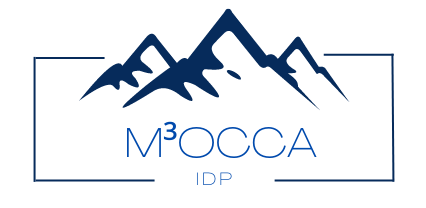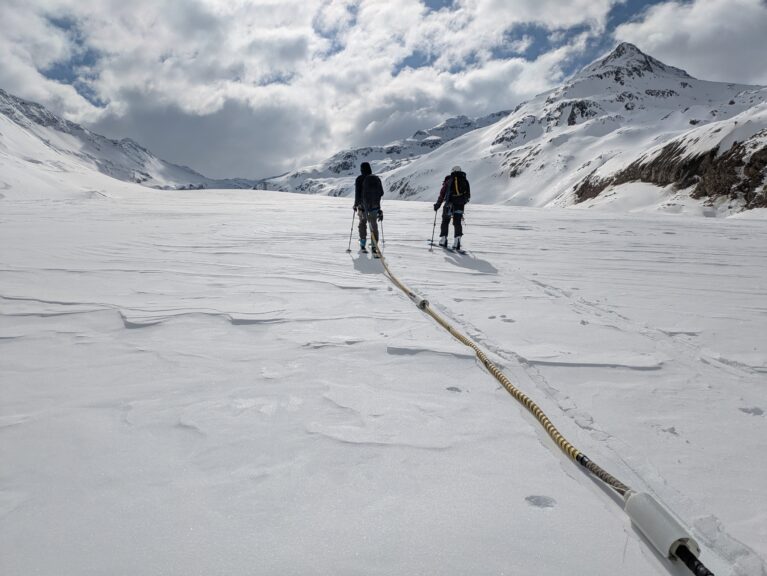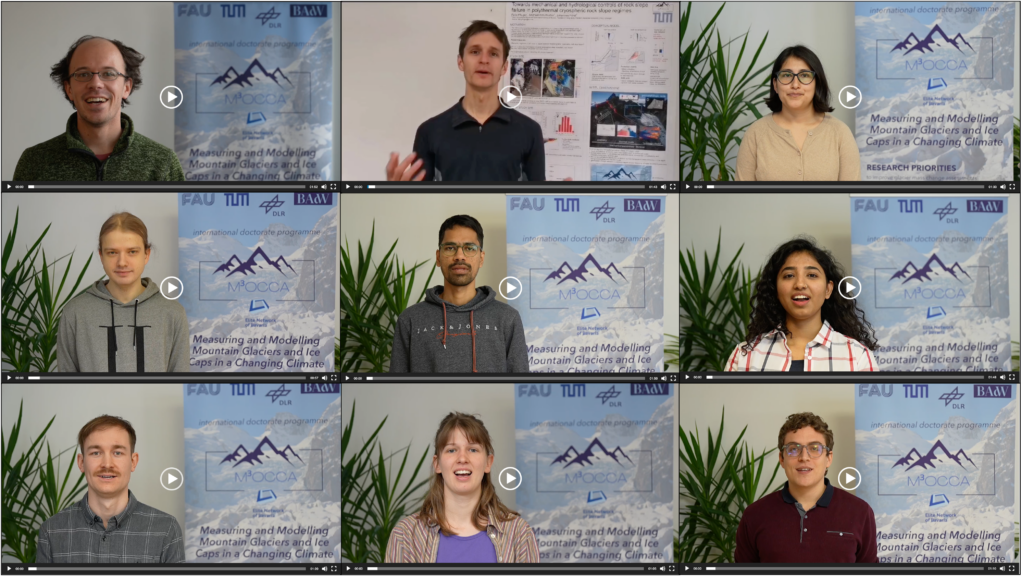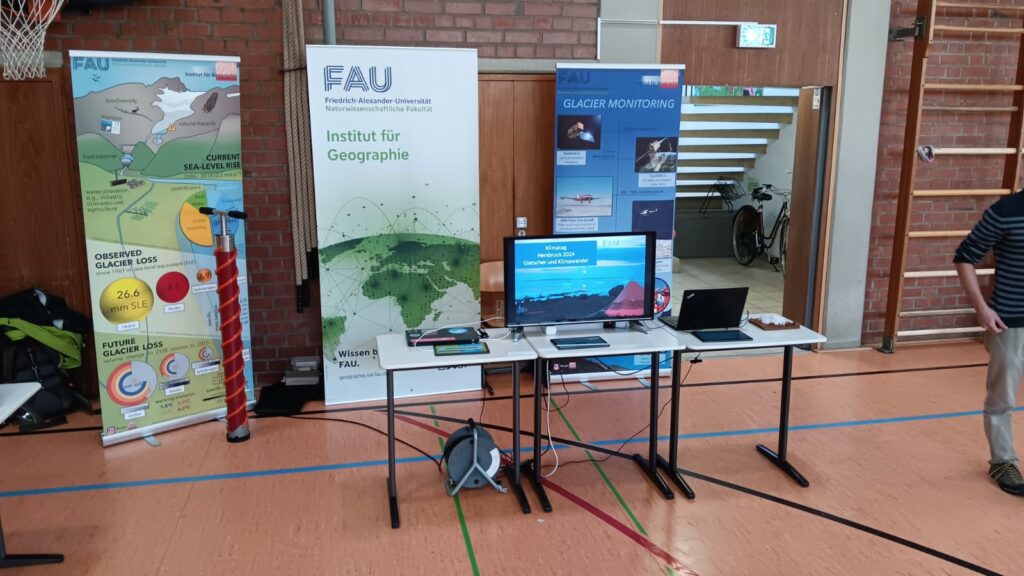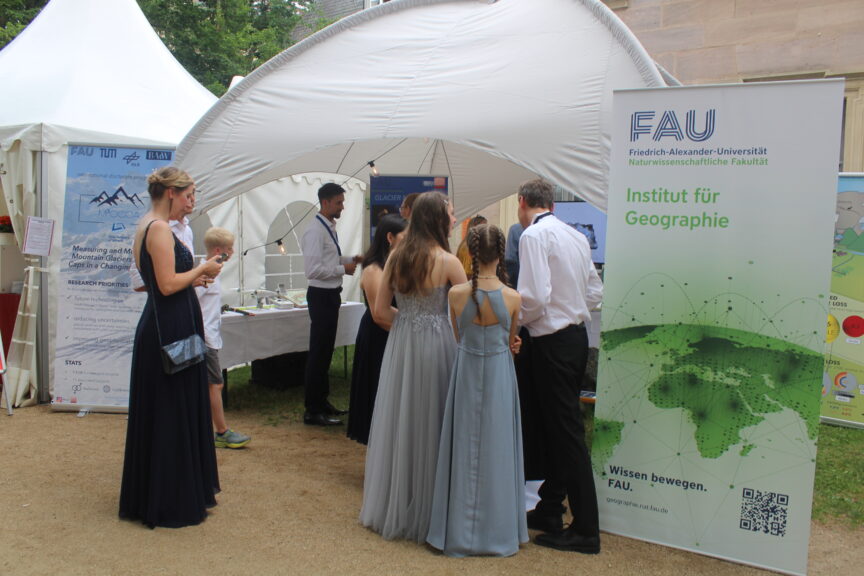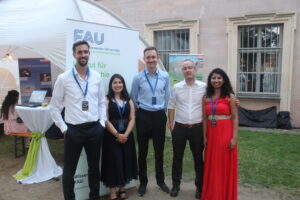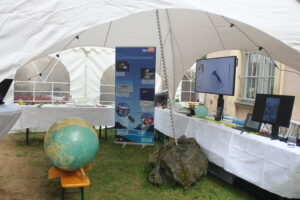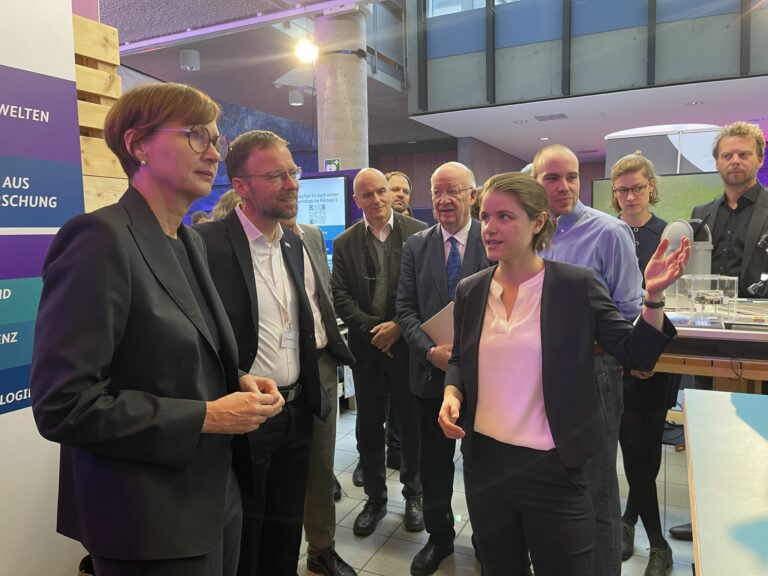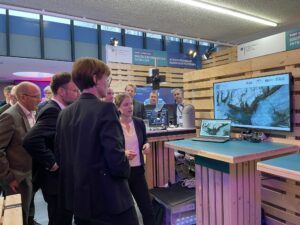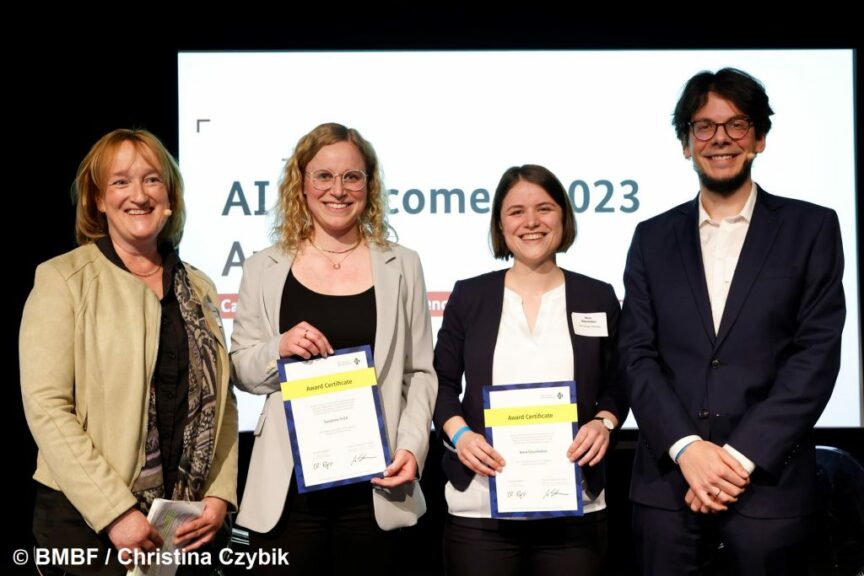Winter Fieldwork Hintereisferner 2025
During regular office days, a glacier often feels very far away. Fieldwork is always exciting because it provides a clearer understanding of what we are actually researching. From April 1st until April 4th 2025, Céline Walker (FAU Erlangen-Nürnberg, M3OCCA-affiliated), Felix Pfluger (Technische Universität München (TUM), M3OCCA) and Léa Rodari (Université Lausanne (UNIL)) were in the field to acquire GPR data on Hintereisferner, Austria, for the M3OCCA-affiliated DeLIGHT Junior research project.
For this spring’s fieldwork, we went to the Hintereisferner in the Austrian Alps. We drove to Rofental on Tuesday and met up with colleagues from the Universität Innsbruck (UIBK). Together, we went to the small research station situated at 3,050 m a.s.l., which offers an excellent view of the impressive glacier. The hut was our home for the next three days and is equipped with a small gas stove, a table, eight beds, plenty of gumboots, a guitar, and an old portable gramophone.
Upon arrival at the hut, we settled in, reviewed our crevasse rescue techniques, and made the final preparations to go onto the glacier. Over the following two days, our goal was to investigate the glacier and its englacial water regime. We used a ground-penetrating radar (GPR) antenna provided by Felix’s working group at TUM. The GPR antenna sends out radar pulses and receives echoes from layers where the density changes. This makes GPR an ideal tool for detecting the bedrock beneath the ice, as well as objects or water within the ice.
After testing the antenna, we began our measurements on the lower part of the glacier. We skied across the glacier in a zigzag pattern while dragging the antenna behind us to obtain radar profiles perpendicular to the flow direction. We used a 50 MHz center frequency for sufficient penetration depth in the ice and 100 MHz for high resolution of small features.
We were lucky with the weather on the second day and got some sunshine, which made the scenery magnificent. We could complete our measurements and ended up with a dense measurement grid of the lower part of the glacier. After finishing the data acquisition, we were able to relax and enjoy the cozy hut and its view on our third evening.
On Friday, we returned to civilization, bringing with us a new dataset. With the collected data, we now have a record of the englacial water content in spring. Later this year—during the melt season—the measurements will be repeated, and the water content and discharge regime will be compared to the spring data. We are already looking forward to the next fieldwork.
This fieldwork wouldn’t have been possible without the support of Léa and Felix for the data acquisition and the provision of the GPR antennas. Big thanks go to Rainer Prinz for the coordination of the fieldwork and Marie Schroeder and Leo Schlagbauer from UIBK for the accompaniment and hosting in the hut. Those contributions are appreciated.
This project is funded by the Elitenetzwerk Bayern.
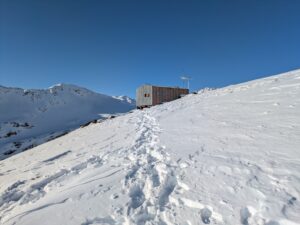
The research station situated on 3026 m a.s.l. above Hintereisferner was established by the UIBK in the 70s.
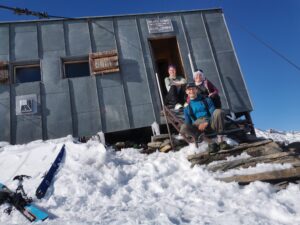
After the successful data acquisition, Felix, Léa and Céline enjoyed the sun outside the hut.
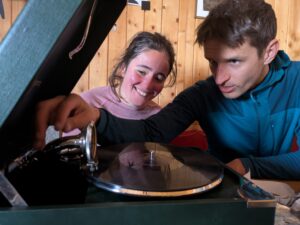
The reseach station was equipped with a portable gramophone and a variety of old vinyls worth listening into.
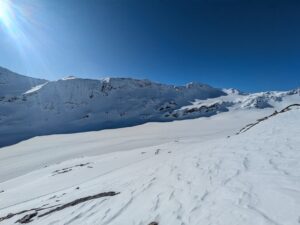
The view on the glacier from the research station.
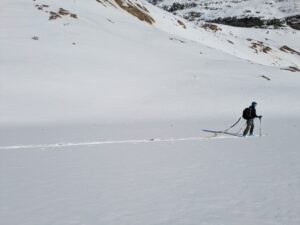
Felix is carrying the GPR antenna over the glacier.
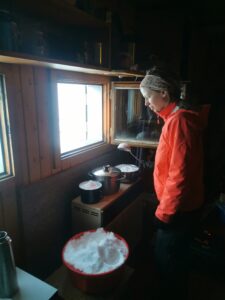
Snow was constantly cooked on the stove in the hut to get drinking water.
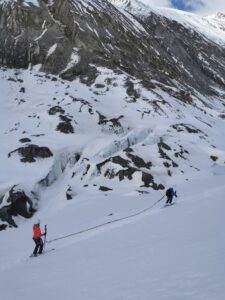
Léa and Céline are dragging the antenna over the uneven glacier tongue.
